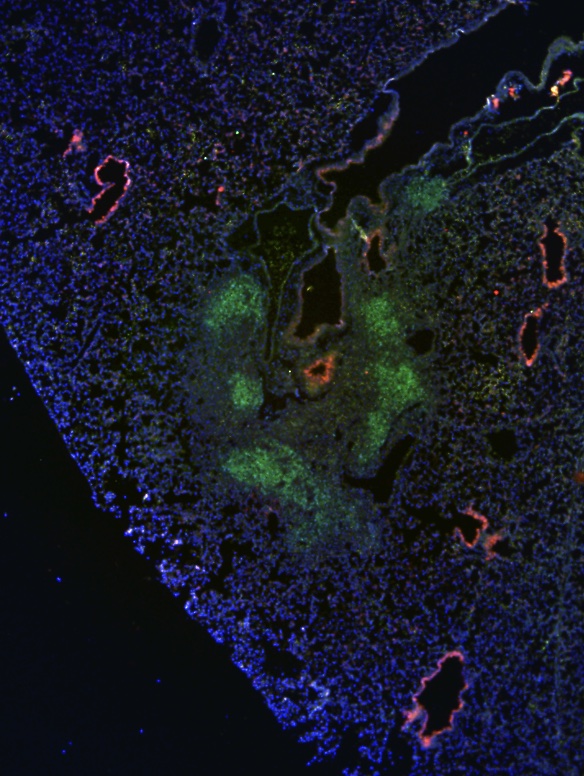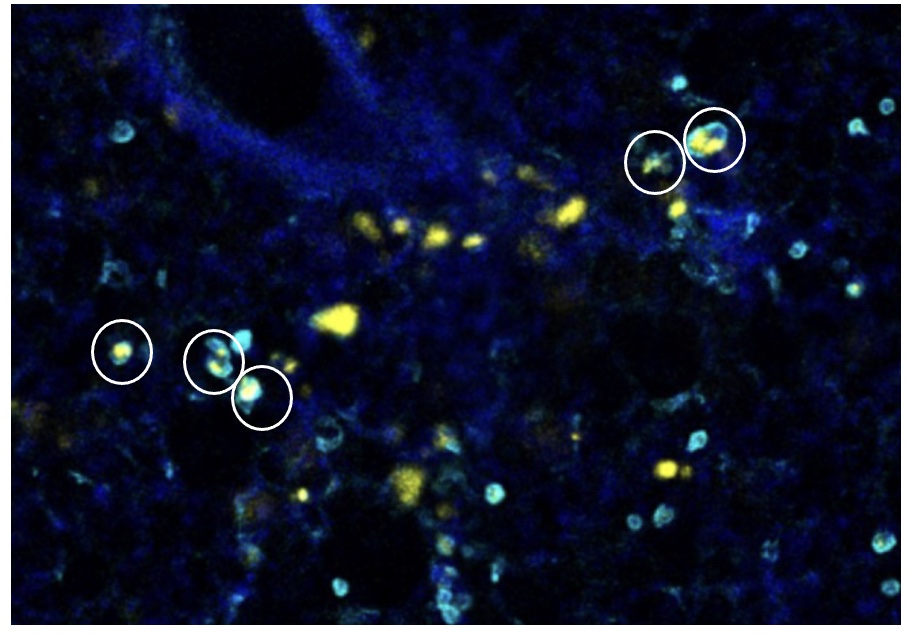The respiratory mucosa serves as a significant entry point for pathogens. Induction of adaptive immunity to these pathogens is thought to initiate with respiratory dendritic cells (rDC) that form strategically positioned networks within the lungs that allow these cells to sample the environment.
The Legge laboratory is focused upon determining the role that these respiratory dendritic cells (rDC) play in initiating and regulating T cell responses. Our current projects utilize influenza virus, RSV, and group A Streptococcus to study:
- the critical role that local interactions of DC with effector T cells within the lungs have in boosting and shaping pulmonary T cell responses and allowing pathogen clearance and recovery from infection;
- the factors that control rDC programming in the lungs and how the type and degree of the pulmonary infection/exposure is translated into different effector programming of T cells within the lymph nodes; and
- how chronic alcohol consumption alters pulmonary DC and T cell immunity therein increasing the incidence and severity of pulmonary infections in alcoholics; and
- how sepsis alters dendritic cells.

Furthermore, the laboratory is focused on applying knowledge on how immune responses protect against respiratory pathogens to design broadly protective vaccines against these pathogens. The currently approved vaccines against influenza (live attenuated influenza vaccine [LAIV] and tri/quadrivalent inactivated influenza vaccine [TIV/QIV, i.e. “flu-shot” or IIV]) are designed to largely induce systemic antibody (Ab) responses against the influenza hemagglutinin (HA) protein and do not drive long-term local (i.e., lower lung airway) resident memory T cell and B cell responses, which have been shown to be needed to optimally protect against IAV infection, particularly against heterologous influenza exposures. Thus, we are studying how nanoparticles can be used to target rDC and induce/boost protective, broad-based resident and systemic antibody and T cell responses during vaccinations against pulmonary viruses like influenza and SARS-CoV2
